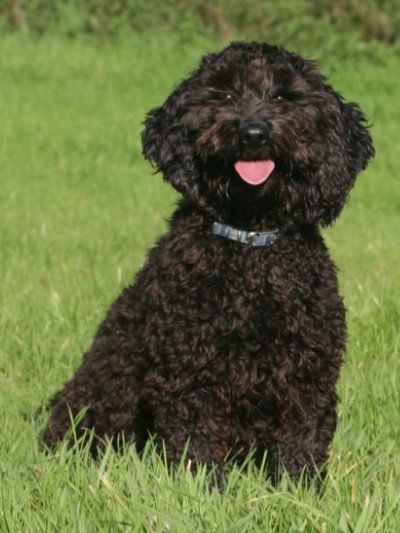


A well trained dog is a happy dog. He knows what is expected and when, and confident in this. You communicate clearly with one another; and in turn, peacefully co-exist. Your dog is a joy to you.
As with all important communication, it takes knowledge, understanding, consistency and perseverance to develop this beautiful relationship, but the rewards by far outweigh the work.
But where to begin?
Laying good foundations early can save you avoidable difficulties later on. It is far simpler to develop good habits at the start than it is to correct poor habits later on - in owner or dog! Fortunately, developing the bond between you and your dog into a mutually satisfying relationship is well within your grasp with a little instruction and sound advice.
And even if you are having difficulties, or have hit a wall, not to worry - many unwanted behaviours can be corrected, and with love and training before too long you'll be headed in the right direction again.
Two hour long consultation with you and your dog, leading to a personalised training plan, carried out prior to any behaviour modification.
Behaviour modification sessions, where I teach you and your dog each step in your individualised training plan.
Month 3 follow up session, to check your progress, with my recommendations and tweaks to the training plan.
Essential skills to include sit and wait, toilet, loose lead walking, good manners, and recall.
Correcting common unwanted behaviour, for example counter-surfing, jumping up, pulling on lead, intermittent recall, etc.
Help with challenging issues, for example separation anxiety, reactivity, resource guarding, etc.
There are many different ways to train a dog.
Step by Step gets its name from a particular approach to dog training we use, which breaks behaviour modification and training into manageable steps.
Our techniques are designed so that you learn how to train your dog, and feel confident doing so on your own. With time, technique and encouragement, you and your dog can function in harmony with one another.
This comes partly by understanding the world from your dog's perspective, and partly from recognising the effect we each have on our dogs by how we behave and sound. With time, technique and encouragement, you and your dog can function in harmony with one another. Our techniques are kind to owner and dog, and emphasize reinforcing positive response and behaviour.
From week to week, training with me is carried out in sessions. Sessions follow a plan which I develop with you, from an initial assessment. The aim is to learn what to do, and then become consistent in doing it. Each training session provides you with knowledge and a demonstration of technique, and some supervised work with you and your dog, as the time permits. Training continues between owner and dog between these sessions.
Most of my customers like to have a training session once a week, but in some cases, dogs come to stay with me for an extended period of time for specific problem solving or particular training. Some behaviours are best tackled this way, and some skills are best taught this way. Please see my Board-and-Train page for more information about this.
It is important to remain realistic about changes in behaviour, as it takes time and patience to achieve lasting results from training with consistency and repetition. You are unlikely to see immediate improvements simply by having the initial consultation. However, the consulation leads to the development of a written behaviour modification plan which will equip you with the correct training methods to modify your dog’s behaviour, and you will certainly see results if you continue to follow the plan.
Having a written plan puts you in the driving seat, and gives you all the information you need to move forwards.
If you are undertaking a plan without supervision, I always recommend to have at least one intermittent follow-up appointment. This allows me to check on your progress with your dog, show you how to progress further together, and to make any adjustments to the training plan if they are needed. It is also a brilliant opportunity to ask questions, check your technique, and refresh what you learned at the initial consultation.